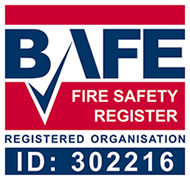Love it or loathe it DIY is something most of us end up doing and with spring rapidly approaching, the chances are you’re thinking of tackling those maintenance or decorating jobs you’ve been avoiding all winter.
Whilst DIY jobs are often unavoidable, it’s alarming to think that DIY mistakes are responsible for over half of all the electrical shocks which happen in homes in the UK. Around half of all men prefer to try and carry out repairs themselves, rather than asking using a professional electrician.
Serious electric shocks can be caused by a wide range of DIY errors but the most common include drilling into wiring, cutting power leads and attempting to repair electrical items whilst they’re still turned on.
With this in mind, the importance of electrical safety whilst carrying out DIY tasks is of paramount importance and although it can be very tempting to turn to the internet for DIY tips, it’s very important that the advice you use is from a reliable, reputable source.
If you need any electrical work or repairs, the best advice is to always use the services of a qualified, professional electrician. However, if you are doing DIY, provided you follow the following safety advice, you should be safe:
- Always make sure you know where the cables are in your walls BEFORE you start drilling. Accidentally drilling, nailing or screwing into cables hidden inside walls is one of the most common DIY mistakes but provided you use a good quality cable detector, you’ll be able to locate buried cables and help avoid the risk of an electric shock.
- Turn off the power! Although this sounds obvious, you’d be surprised how many people fail to do this. Any work that is carried out near electrical wiring or power supplies must be done whilst the power is off so make sure you shut down the fuse box and where possible use battery-powered tools. In addition, it’s a good idea to double-check that the power is turned off before you start by plugging in an appliance into a socket and checking the mains lighting is off.
- A residual current device (RCD) can help to save your life as it will cut off the power if you make a blunder. You should have one fitted to your fuse box and if necessary, use a plug-in RCD.
- Power tools should be checked before you use them: make sure they are in good condition and if you can see any signs of damage such as frayed wires, make sure the equipment is repaired or replaced beforehand.
- Keep your eye on the power lead at all times as this can help you avoid tripping over it or accidentally cutting through it.
- Last and by no means least, if in doubt use a reputable electrician such as one of the team here at Dalec.
Our electrical services are available to residential customers throughout Leeds and for us no job is too small. If you would like to find out more, or to obtain a free, no-obligation quote, please don’t hesitate to get in touch on 01535 606 006.








